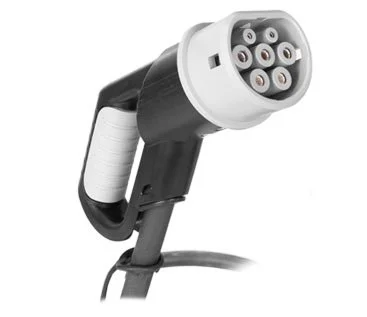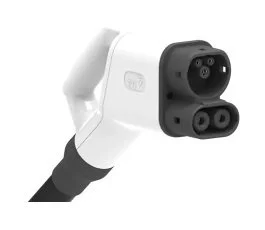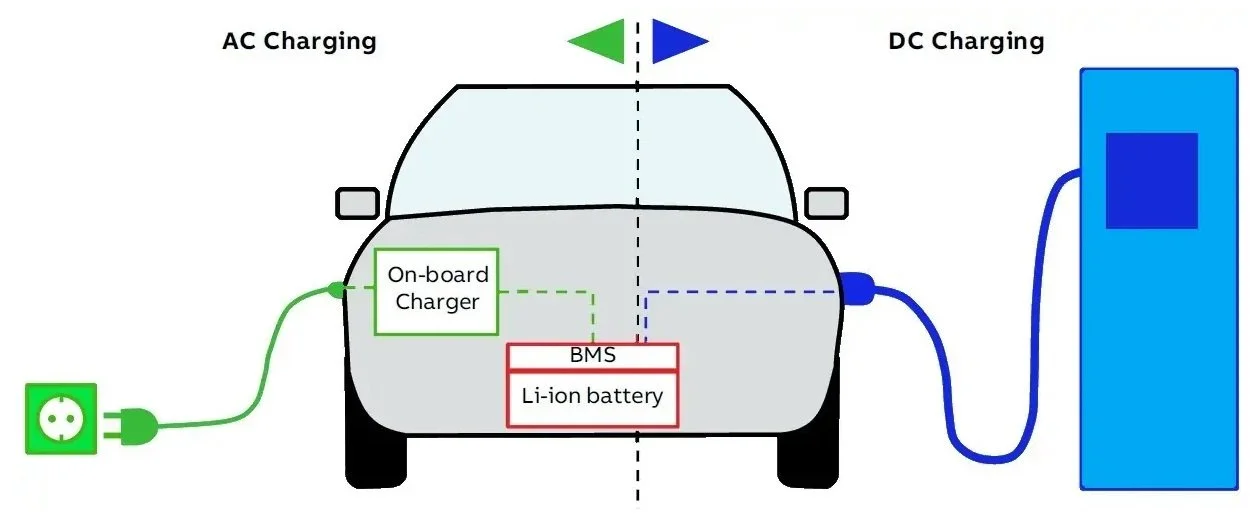
EV Charger Installation Services in Brisbane
Electrical Embassy are Electric Vehicle Charging specialists in Brisbane.
At Electrical Embassy, we keep up-to-date with the latest in electrical technology and trends. The biggest change in the last couple of years is Electric Vehicle (EV) charging, and ensuring home electrical systems are suitable for EV, as well as the different chargers available for EV owners. Get professional EV charger installation services in Brisbane with our expert electricians. Fast, reliable, and safe service to keep your electric vehicle charged and ready. Most consumers overestimate the amount of distance they travel daily, along with the many urban myths around EV’s it is important to get someone like the expert team at Electrical Embassy to help guide you through the journey.
It’s important to note that while many electrical trends have reduced the demands on electrical systems like energy efficient air conditioning and LED lighting, where EV chargers have a high constant electrical demand and will place a higher load on your electrical system. In most cases, the current electrical systems in our homes and workplaces were not designed with electric vehicle charging capacity needs in mind. This can catch many people by surprise. Additionally our electrical grid cannot cope with the expected high demands. Imagine if large quantity of vehicles arrive home and start charging at the same time as our typical evening electrical peak, we will have rolling blackouts where whole areas are just “turned off”. So Energex has stepped in with multiple rules around EV charging and methods of control to elevate this which can be found here:
Energex EV charging and connection guide
As we integrate more electric vehicles into the market, there are many new words, phrases and acronyms for everyone to learn and understand. There’s a large range of accessories used to charge electric vehicles.
The following is an introduction that will help you better understand the new technology. We’ll keep this page updated for you when new information or products arise.
CEO Troy Rolley is a Tesla owner, putting the tech to the test!
EV Lingo
First lets get debunk Electric Vehicle language and abbreviations:
EV - Electric Vehicle
BEV - Battery Powered Electric Vehicle
PEV - Plug-in Electric Vehicle
PHEV - Plug-in Hybrid Electric Vehicle
ICE - Internal Combustion Engine eg: petrol or diesel
EVSE - Electric Vehicle Supply Equipment (most people call it their EV charger, but in fact it is not a charger, just a device that regulates the power supply to the car the correct term for this device is EVSE, the actual charger is inside your car)
J1772 - Type 1 Plug, charging usually at 16amp or 32amp, Single Phase
IEC62196 - Type 2 Plug, charging usually at 16 or 32amp Single or 3 Phase
CHAdeMO - DC Charging Plug used for Fast Charging
Slow Charge - Usually 10amp or 16amp (3.6kW) charging
Fast Charging - Direct Current (DC) Charging 50kW or above
kW - Kilowatt, a unit for measuring power
kWh - Kilowatt hour, a unit for measuring energy
Charging
AC EV Charging Plugs
TYPE 1
Also known as: J1772, SAE J1772
This plug is used for single phase charging.
240V AC up to 32amp 7.6kW.
Used as the standard plug type for Japan and North America and rare in Australia
TYPE 2
Also known as: IEC 62196, Mennekes
This plug is used for single and 3 phase charging.
230V AC up to 32amp 7.6kW, Single Phase. 415V AC up to 32amp 22kW, 3 Phase.
Used as the standard plug type in Europe and has become the standard type of plug used in Australia.
DC EV Charging Plugs
CCS Combo
Combined Charging System also called Combo Coupler
This plug is a combination of the type 2 plug with 2 extra contacts for DC rapid charging. This is what you will find at your supercharger network.
CHAdeMO
Abbreviated from CHArge de MOve
This plug is used for DC rapid charging only. It is used by Japanese car manufactures. Some very early Japanees EV ‘s imported into australia may have these plugs.

Types of EV Chargers
Level 1 EV Charger
The level 1 charger is small and portable, so in some cases you can plug it into commonly found power point either at home or at the workplace, these power points are typically rated at 10amps , single phase (there are other technical considerations but this is the basics and what most homes and workplaces have already).
You can also consider using or installing a 15amp or 20amp single phase outlet. These options will be the lower cost options but also slower charging speeds for you EV, but if you only travel up to say 80Km’s per day you EV will always be fully charged overnight so no big issue.
Approximate charging speed:
10 amp single phase = approximately 10km added per hour.
15 amp single phase = approximately 15km added per hour.
20 amp single phase = approximately 20km added per hour.
This type of system may also suit a consumer who does not have solar and would like to consider cheaper “off peak” power options
Level 2 EV Charger
Charging is supplied via a dedicated plug hard wired back to a switchboard using specific cable capable of carrying much higher currents (Amps), charging your vehicle in a shorter time than level 1 charging. By using this type of charger it will give you more kilometres per hour of charge which increase the usability of your vehicle and saves you time in waiting for the battery to charge.
This type of charger is also the best solution for users with surplus solar production and want to direct the surplus to their car recharging at a faster speed as the surplus solar production typically occurs in a smaller window, typically 9:00 AM to 3:00 PM, to be taken advantage of that surplus energy production during the day (if the car is home at these times, during the day or on the weekend). The level 2 chargers cost more to purchase and have installed, but the advantages can make it a worthwhile investment.
Approximate charging speed: up to 40km added per hour (single-phase) or up to 130km per hour (three-phase).
A Level 2, single-phase, 7kW charger (32 amps), can add up to 40km of range each hour. A three-phase, 11kW charger (16amps) or a 22kW (32amps) charger, can add up to 80km to 130km of range each hour. Check your electric vehicle specs, because not all cars are equipped with the same capacity (kW) converter for the higher AC to DC power conversion. Here is a useful link for EV car charger specifications.
Note under current Energex regulations all Level 2, single-phase, 7kW chargers must be controlled by one of three methods required by Energex. These details can be found here. So unfortunately someone else could externally control when you car will be charged and for how long.
(That why we are recommending the 15amp/20amp single phase solution as described in the Level 1 EV charger section above for 100% personal charger control)
Level 3 EV Charger
Fast charging from dedicated DC supply equipment. These are not what you would install in domestic situation due to the cost of the supply equipment and the demand on the electrical supply to the property. They are most suited for side of road service centres and fleet charging where there is a high turnover of vehicles charging or charging time is critical to business operation.
Approximate charging speed: 200 – 1000km added per hour.
Level 3 chargers offer an output of 50kW to 350 kW. They can cost upwards of $55,000 to install, need a large power supply and are ideal to top up your EV on long trips.
These chargers are fast, for example a 150kW DC Level 3 charger can provide 180km of range in under 15 minutes. As technology increases the speeds will also increase, some locations with 350KW + chargers. These networks are commonly seen along popular travel routes and at major shopping centres. Experience top-notch EV charger installation services in Yerongpilly with our certified electricians.
AC vs DC Charging — What’s the difference?
AC charging is achieved via a portable or hardwired EV charger that delivers an alternating current of between 2.4 – 22kW to the vehicle onboard battery management system. This slows the rate of charge as it needs to convert the AC power to DC power. Battery electrical energy is stored in a DC state.
DC charging is from public or semi-public chargers delivering between 23 – 350kW of DC power directly to the vehicle battery.
The DC power bypasses the vehicle onboard inverter making for a much quicker charge time. DC voltages range between 500 – 900VDC, which also impacts charging times. Not all electric vehicles can accept a high voltage with all EV’s slowing fast DC charging at 80% and reverting to a slower charge rate for battery storage optimisation.
Charging times
Charging times will vary from vehicle to vehicle due to contributing factors such as, battery temperature, the size of the vehicle’s on-board charger and the size of the vehicle’s battery to be charged. The kW recharging level you select will have an effect on your charging times.
Remembering Level 1 = 2.4-4.6 Kw AC portable charger, Level 2 = 7-22kW AC charger, Level 3 = 24-175kW DC Charger.
Charging Costs
One of the most important factors when purchasing a new vehicle is the running costs. The great news is the running costs for electric vehicles is significantly lower than petrol/diesel vehicles in fuel and servicing costs.
This is how to work out your costs for fuelling your vehicle.
You first need to find out what you pay per kWh for your electricity, you will find this on your electricity bill, likely to be about $0.29/kWh. Now you need to look at the battery size of the electric vehicle you intend to charge. For this example, we will choose the Tesla Model Y Rear-Wheel Drive with a battery size of 60kWh and a claimed range of 455km (WLTP).
The cost to charge a Tesla Model Y is 0.29 x 60 = $17.40 (April 2024 prices)
From this equation, we can work out the cost per km by dividing the charging cost of $17.40 by the range of 455km, 17.40 / 455 = $0.0382 per km.
0.0382 x 100 = $3.82 per 100km.
You can use this example for any electric vehicle to determine your charging and per kilometre travel cost.
FAQs
-
A Level 2 charger can cost upwards of $2,000 to install. But, for the price, you can enjoy a significantly quicker charge time than with the Level 1. You get a higher amount of kilometres for every hour of charge, saving you time and increasing the usability of your vehicle. So, yes, the Level 2 is well worth installing as your home EV charger.
-
If you have one EV, a single-phase, 7kW should suffice, unless you need your car charged up quickly every day. Plus, the majority of EVs can only handle an AC power of around 11kW, which is half the capability of three-phase chargers.
For those with two or more electric vehicles that get used frequently, a three-phase charger is useful. They are also recommended if you have a solar system that is 10Kw or larger and you plan on adding large amounts of solar energy into your EV during sunny periods.
In summary three phase gives you the best home or workplace charging experience and minimal Energex restrictions.
-
Every public charging station you come across will vary slightly. Some will offer Level 2 speeds and others, the Level 3 super-fast charge. Some Level 2 public charging stations require you to bring your own cable that is Type 2 (32A, 250v AC).
If you use a specific charging network, always view the network website before you start your journey, to check that charging stations are in service and if you’ll need to take your own charging cable.
-
Further Reading
Tesla Review by Troy Rolley
Our CEO Troy Rolley purchased a Tesla Model 3 and has posted his first review. Many more to come!
EV Cars Fact Sheets
If you haven’t yet purchased your EV, checkout the EV fact sheets currently available:
Not sure which EV charger suits your home, unit complex or business?
Connect with our team and we’ll help you choose the perfect ev chargers solution for your needs.
Call our friendly team on (07) 3622 6443








